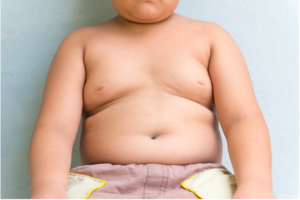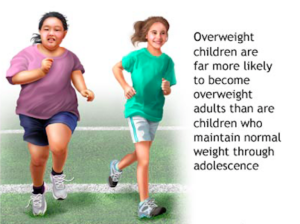Fatty.
Lardass.
Pizza tits.
Hot dog neck.
Buffet murderer.
If you’re a parent who has an overweight child, you can rest assured they’re getting bullied and called names on a regular basis whether you’re hearing about it or not.
A topic that doesn’t get near the amount of attention it deserves is the subject of childhood obesity. With 1/3 of Americas kids currently overweight and the first generation expected to live a shorter life span than their parents, this subject is the health and food industry’s dirty little secret that no one wants to talk about.
And it is a delicate subject, because for every obese child there is almost always an obese parent. And when we point a finger at someone for being overweight — WHOA!
So many hurt feelings and so much outrage. So as parents, when we are forced to deal with the inconvenient truth that we may be contributing to our kids being bullied and/or suffering from poor body image or health issues — it can be a tough pill to swallow.

That said, there are things you can do to overcome this issue:
• educate your children on the benefits of healthy foods
• provide them with a “no fail” environment — purchase healthy foods
• address this as a FAMILY problem; don’t single out the child and make them feel “bad” or “different”
• portion size control
• no second servings
• avoid liquid calories
• avoid snacking in-between meals
• do NOT encourage your kids to clean their plates
• eat together as a family
• no electronic distractions while eating
Above everything else, BE A ROLE MODEL.
Your kids likely became overweight because they’ve learned to emulate your relationship with food and adopt your behavior patterns — for better or worse.

The good news is, it’s not too late! Children are far more susceptible to learning new behaviors than adults and this course of action can be changed with a little deliberate intent. It can be as simple as including them in the process of creating a healthy menu, taking them grocery shopping, involving them in the cooking, and then taking the time to explain the health benefits of the individual foods.
Kids love to learn, but they love spending quality time with their parents more than anything else. It’s your attention and acceptance that they crave, not the latest video game. Give them the gift of a fun memory together and a new developmental skill.
To be fair, this probably won’t be all rainbows and fair farts in the beginning. Depending on the age of your child, you may experience some push-back in the beginning — be mentally prepared for that, but stay the course with patience. You likely helped your kid get into this mess, now it’s time to help them clean it up. That’s what good parenting is all about.
